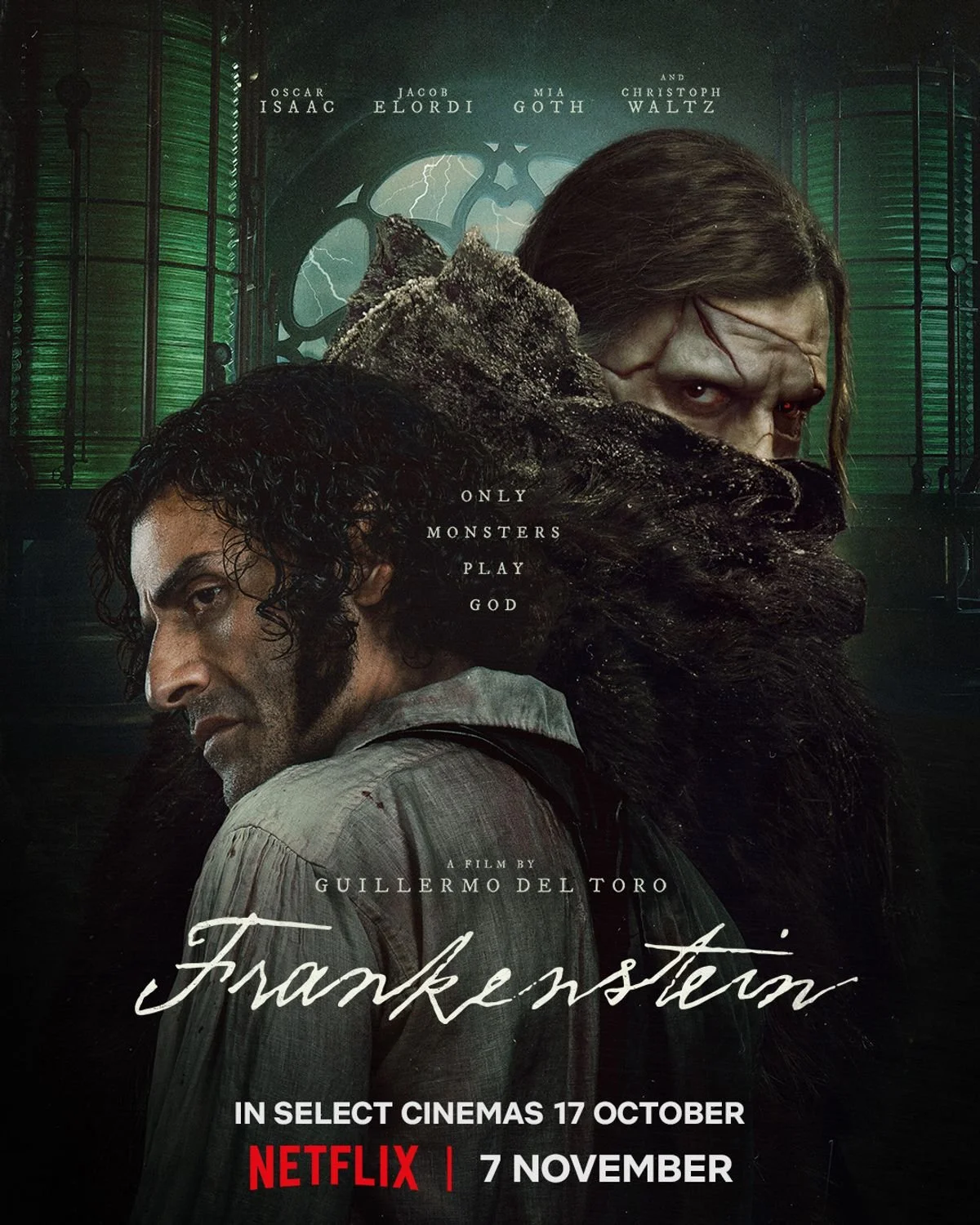Frankenstein
Only Monsters Play God (hi, my fellow politicians with apparently daddy issues).
Guillermo del Toro’s new take on the iconic story, wrapped in his gothic romanticism, is exactly the kind of thing you can expect from him, and what is there not to love, since he tries to show the Frankenstein story in his own style. I think this is one of those rare moments when I don’t even need to write a synopsis, because everyone already knows what happens in this story. That works only if you stay on the surface though, because in del Toro’s version the essence shifts a bit from the original material.
The film raises, just like the book, the eternal story of the creator and the created, of madmen who think they are great and try to play gods, of the naivety we bring into this world and what we put into the ones we create. It is a story about how monsters are not born or made, they become. Although in many ways it turns into a film about daddy issues. It is the story of a son and a father that transforms into another story of a father and, you could say, a son. One monster raised another, and when the second became a creator, he repeated exactly what ruined him.
In this sense, del Toro’s film is not as deep or nuanced as the original story, where you can dig quite far into the identity of both Frankenstein and his Creature. Here the characters feel broken down into more simplified parts. Victor Frankenstein is an unloved child who grew into a crazy madman, a frantic scientist who probably can love only himself and only through the eyes of others who admire him. The Creature is at times reduced to a cute puppy. Even though the essence from the book is still there, the film lacks the scale of the biggest ideas of this story. The ideas of the responsibilities, the fragility of existence, the attempt to trick the eternal, life and death. Still, this lighter, more fairytale-like version has its own value.
It becomes a story of an unloved child who eventually became a monster for his own creation. Del Toro’s film looks grand mostly because of its beautiful imagery, even if some visual effects look a bit questionable. It is a story about how the Creature was created by accident as something pure and was turned into a monster in people’s eyes only because he was not like them. It becomes a story about how even in the hardest and most impossible times you can try to choose love, even if it feels impossible as a non-natural creation who seems unfit for this world, because love can heal you in the loneliest moments.
Even though the film uses a lot of book material, the full story of the Creature never truly opens. In the novel you fully dive into a being abandoned by its god, a clean canvas who feels all the brutality of the world, its hatred and roughness. It saw the world as something beautiful and pure before it realised what it really is. It is easier to watch, and you can imagine that if you went fully into the philosophy of Victor Frankenstein and his Creature, the film could become too heavy.
Oscar Isaac is absolutely wonderful in the role he was given, and Jacob Elordi is brilliant as the Creature. I genuinely cannot imagine anyone else playing it, which is probably the highest compliment, though I still think the appearance of the Creature does not feel monstrous enough. This more consumer-friendly version of the Frankenstein story absolutely deserves its place and is definitely worth watching. Del Toro delivers another beautiful masterclass in heavy gothic storytelling that you can watch without falling into total despair.
It’s a shame it didn’t get a full worldwide theatrical release. Now it’s out on Netflix.
7.5/10




